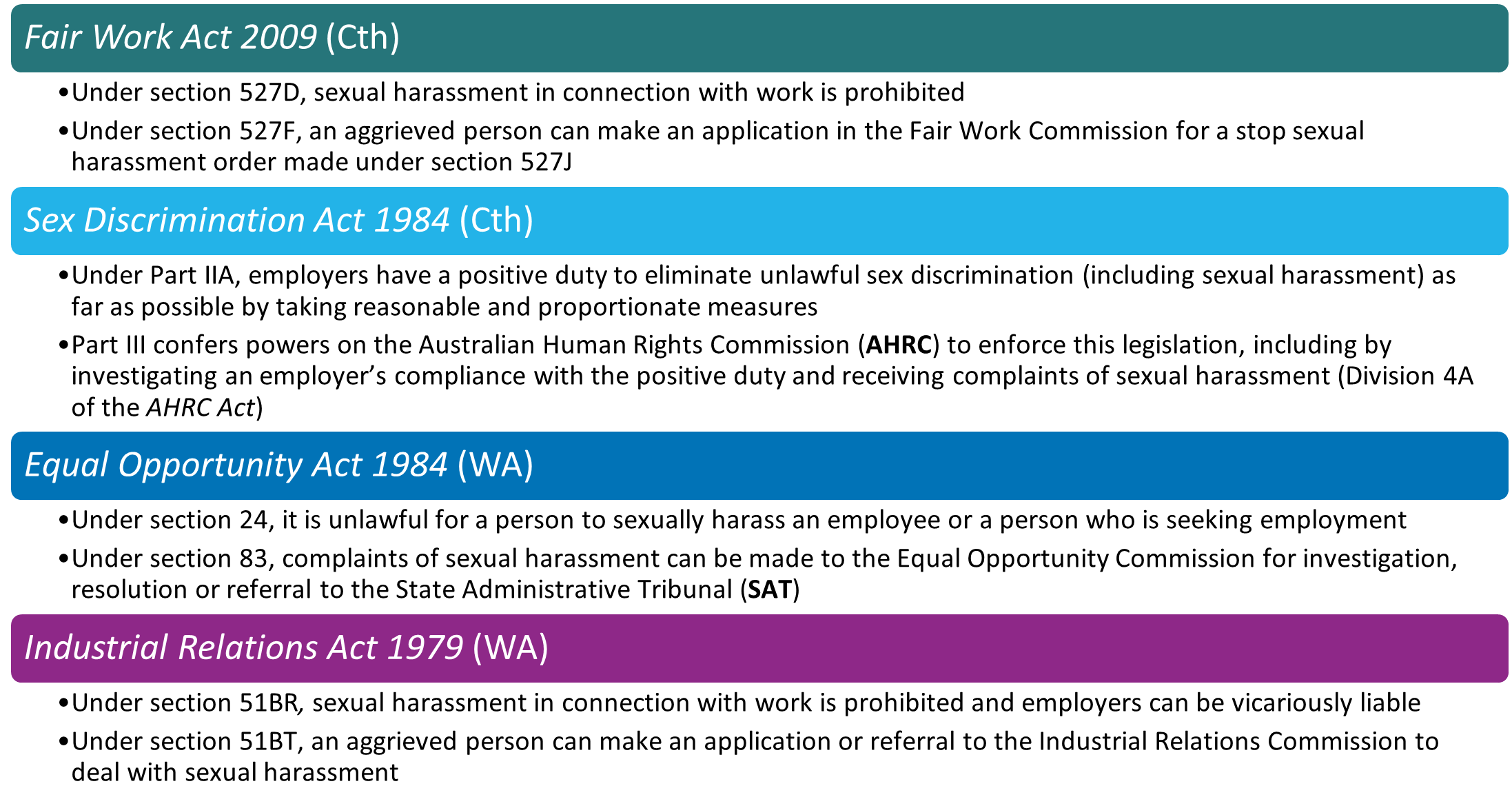Reason #8 to prioritise preventing workplace sexual harassment, courtesy of the Industrial Relations Act (WA)
17 Nov 2024
Last week the Industrial Relations Legislation Amendment Bill 2024 (Bill) passed through the Western Australian Parliament. A key change introduced by this Bill is that it amends the Industrial Relations Act 1979 (WA) (Industrial Relations Act) to expressly prohibit sexual harassment in connection with work.
The changes will commence on 31 January 2025, after which time an employer will be held vicariously liable if its employee commits sexual harassment against another person in connection with work, unless the employer can prove that it took “all reasonable steps to prevent” sexual harassment.
The Bill also provides a new avenue for victims of sexual harassment to take action against their employers, in addition to those already existing under the Western Australian Industrial Relations Commission (WAIRC) and other bodies such as the Fair Work Commission.
Individuals who have been sexually harassed in connection with work, referred to as “aggrieved persons”, currently have the ability to make an application to the WAIRC for a “stop sexual harassment order”.
However, with these changes aggrieved persons will also have an option to refer the matter to the WAIRC for conciliation or arbitration.
No payments of compensation are available if an aggrieved person makes a stop sexual harassment order application only. However if a referral was made under the new provisions then the Industrial Relations Commission can make orders for the payment of compensation or lost income to the aggrieved person.
Other existing avenues for addressing workplace sexual harassment
These amendments add to the existing avenues under the Fair Work Act 2009 (Cth) (Fair Work Act), the Sex Discrimination Act 1984 (Cth) (Sex Discrimination Act), the Australian Human Rights Commission Act 1986 (Cth) (AHRC Act) and the Equal Opportunity Act 1984 (WA) (Equal Opportunity Act).
The amendments add to a combined total of eight fronts that tackle sexual harassment at work:

How can we help?
If the message wasn’t clear already, employers need to take steps to prevent sexual harassment in connection with work now. For specific and tailored advice on how to navigate this area, to draft or review your policies and codes of conduct or for workforce training please contact a member of our Workplace Relations and Safety Team.